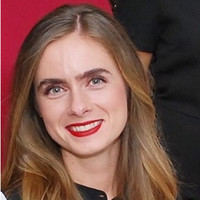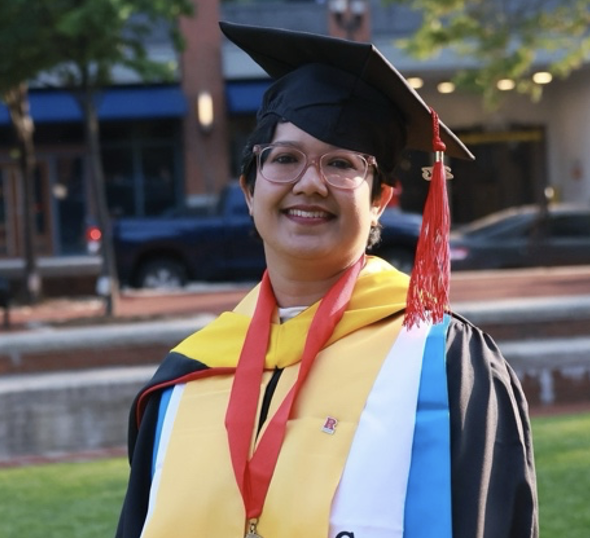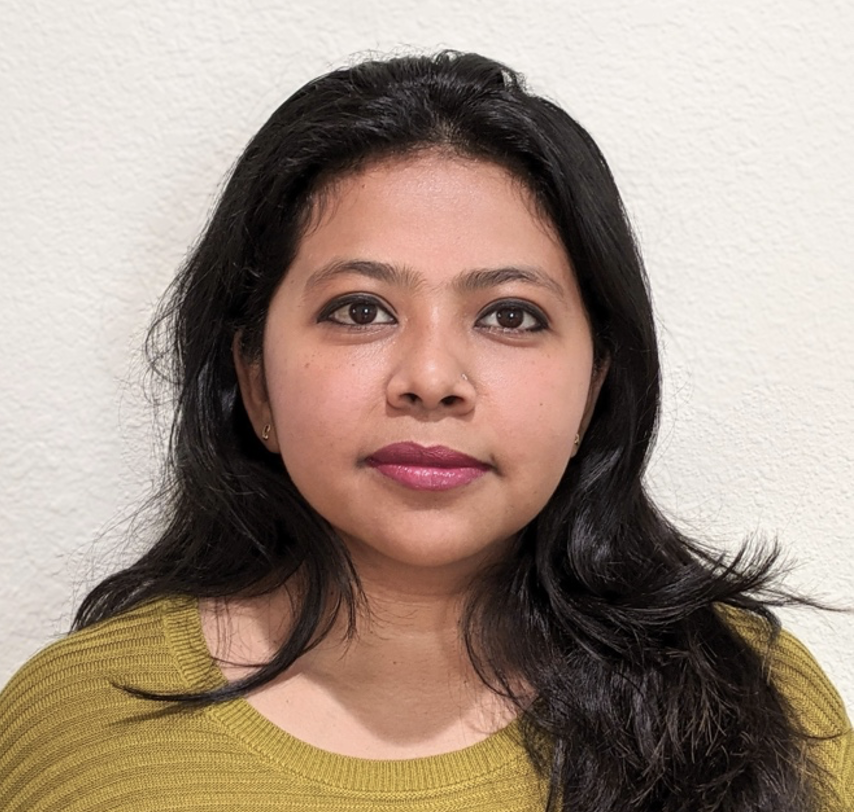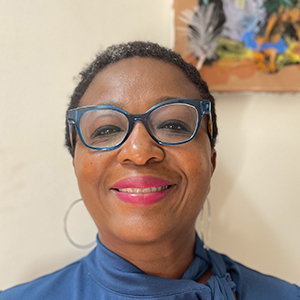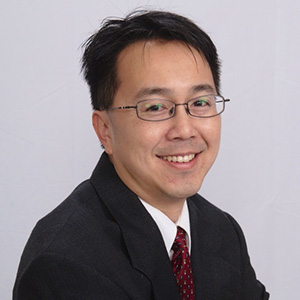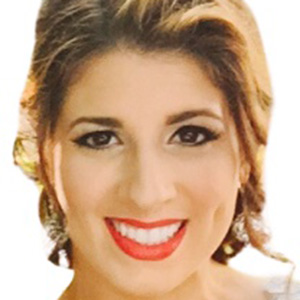Unravel Cellular Mysteries: Master the Art of Diagnostic Cytopathology
Uncover the hidden world of cellular diagnosis with our Cytopathology Program. From malignancies to precancerous cells and infectious diseases, learn the art of microscopic examination and become a leader in modern healthcare. Cytologists (formerly referred to as Cytotechnologist) are highly trained health professional who uses morphologic and other skills to synthesize clinical and laboratory data and assist pathologists and clinicians in providing high-quality diagnostic services.
Why Study Diagnostic Cytopathology at SHP?
Our class of 2023 graduate employment rate is 100% with our graduates employed in medical centers and commercial laboratories across the country.
100% of our Diagnostic Cytologist graduates who seek employment, find employment in their field.
$81,880
* average salary of a Diagnostic Cytopathology graduate.
* U.S. Bureau of Labor Statistics
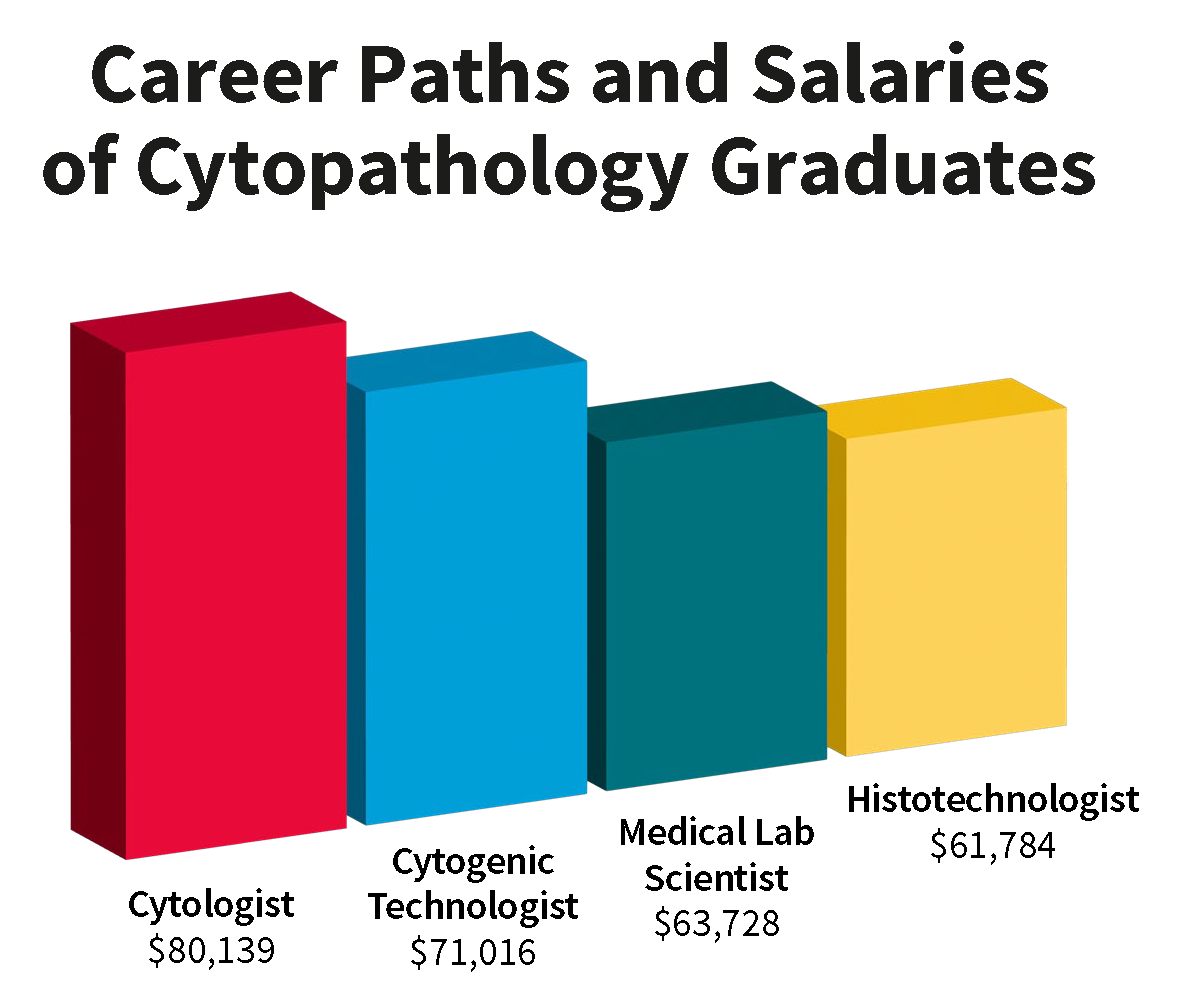
Program Highlights
Rutgers provides the only accredited program preparing diagnostic cytologists in New Jersey through the M.S. in Diagnostic Cytopathology Entry-Level Program.
- Supervised clinical practice is provided at affiliated clinical sites in hospitals and reference laboratories
- Program graduates are eligible for certification by the American Society for Clinical Pathology (ASCP).
- Our program is ideal for B.S. degree holders in the biological, or health sciences looking to pursue career paths in advanced health care practice.
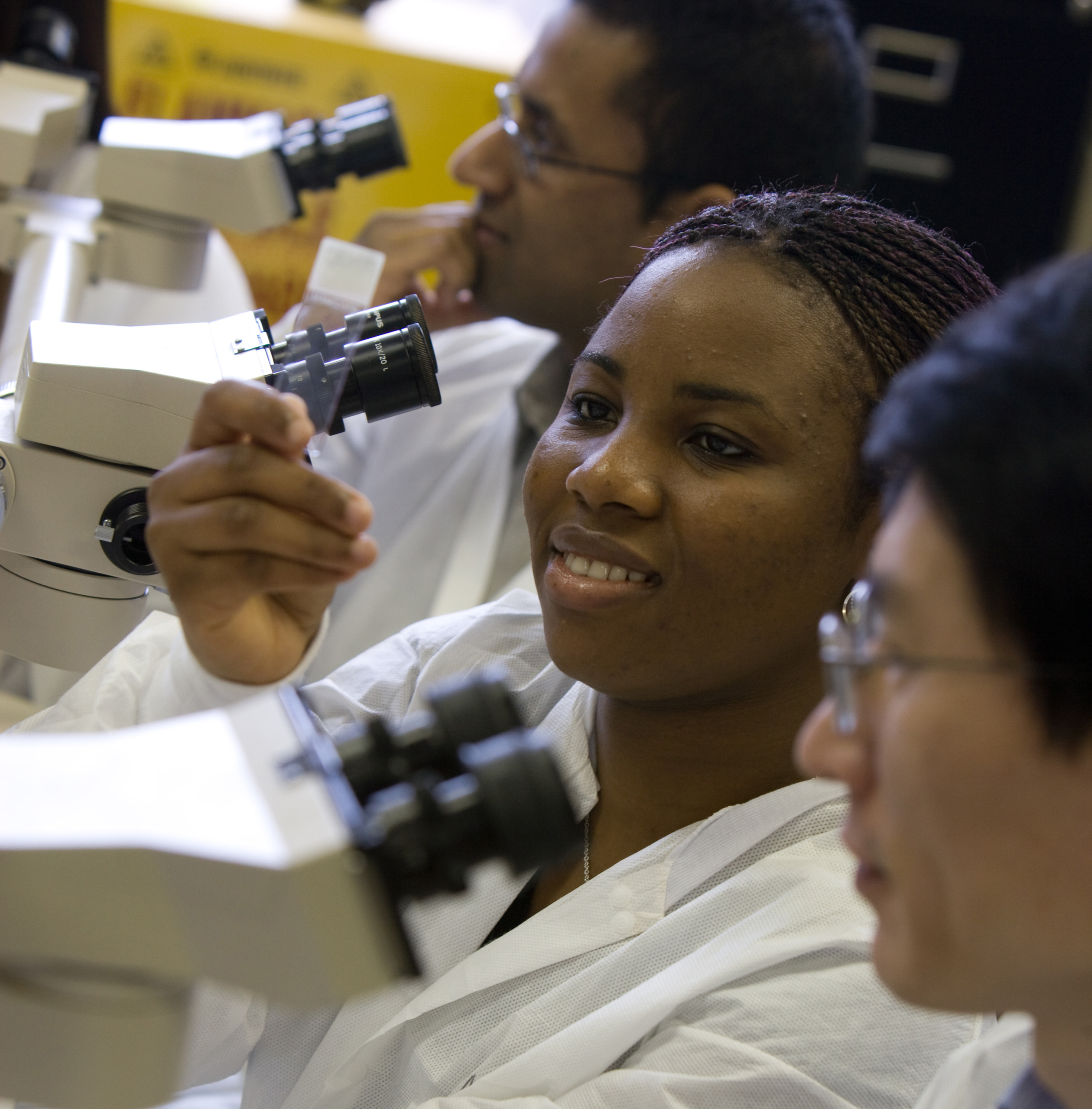
Learning Beyond the Classroom
Through supervised clinical practice, our students engage in hands-on learning under the guidance and supervision of experienced healthcare professionals where they can apply theoretical knowledge gained in the classroom to real-life patient care scenarios.
Atlantic Consolidated Laboratory, Morristown NJ
Bioreference Labs, Elmwood Park, NJ
Caremount/Optum, Mt. Kisco NY
CBL Path Inc, Rye Brook NY
Cellnetix, Seattle WA
Cooperman Barnabas Medical Center, Livingston, NJ
Doctors Pathology Service, Dover DE
Hackensack Meridian-Jersey Shore University Medical Center
Lab Corp of America, Raritan NJ
Newark Beth Israel Medical Center, Newark NJ
New York Presbyterian, NY NY
Northwell Health, Lake Success NY
Quest Diagnostics, Clifton NJ
Robert Wood Johnson- Somerset Medical Center, Somerset NJ
Robert Wood Johnson University Hospital, New Brunswick NJ
Saint Michael’s Medical Center, Newark NJ
St. Joseph’s Regional Medical Center, Paterson, NJ
Program Overview
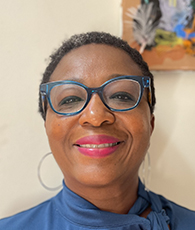
Lois Rockson
Advanced practice diagnostic cytologists are integral to providing anatomic pathology services. They work closely with pathologists, other laboratory professionals, and clinicians in hospital and reference laboratories, cancer centers, biopharma corporations, and research and academic institutions to provide precision treatment and personalized patient care.
Our program teaches students to microscopically examine cells for malignancies, precancerous cells, and infectious diseases and to use companion techniques like molecular diagnostics and digital pathology in diagnostic interpretation.
We offer two program options:
- Full-time entry-level program, preparing you for diagnostic cytology practice, 43 credits
- Full or part-time post-professional program for CT(ASCP) certified cytotechnologists looking to update skills to the advanced practice level, 35 credits
Applications for both our entry-level and post professional programs for fall 2024 will be accepted from August 1, 2024 to March 1, 2025.
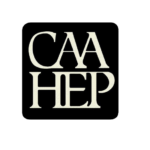 Accreditation
Accreditation
The Entry-Level MS Diagnostic Program is accredited by the Commission on Accreditation of Allied Health Education Programs (CAAHEP). The Entry-Level Program’s accreditation by CAAHEP meets the requirements set forth by the American Society for Clinical Pathology Board of Certification for eligibility to obtain U.S. certification as a cytologist.
Commission on Accreditation of Allied Health Education Programs
9355 – 113th Street, N, #7709
Seminole, FL 33775
727-210-2350
Admission Criteria
Applications for both our entry-level and post professional programs for fall 2025 will be accepted from August 1, 2024 to March 1, 2025.
The program admits students for the fall semester only. Selection of applicants for admission to the MS Diagnostic Cytopathology program is a competitive process that is the responsibility of the program faculty/admissions committee. The Admissions Committee carefully reviews each application and only the most competitive applicants are invited for an interview.
Baccalaureate degree from a regionally accredited US college or university*
A minimum of 28 credits of coursework in biology, chemistry and the health sciences taken within 7 years of planned enrollment to the program
- 3 credits of precalculus or calculus
- 3 credits of statistics
- Overall minimum GPA of 3.0
- Cumulative GPA of 3.0 for science courses
- Official transcripts of undergraduate and graduate coursework from all institutions attended
- Curriculum vitae/resume
- Personal essay addressing career goals and reasons for pursuing the MS-CLS Cytopathology Program.
- Two (2) letters of recommendation from college professors, supervisors, lab managers, pathologist, and/or anyone with knowledge to evaluate the applicant’s academic and professional performance.
- Personal interview
It is highly recommended the courses listed below be included in the 28 credits of coursework and taken within 7 years of planned enrollment to the entry-level program:
- Anatomy and Physiology (8 cr)
- General Biology (8 cr)
- Cell Biology (3-4 cr)
- Histology (3 cr)
- General Chemistry (8 cr)
- Organic Chemistry (3-4 cr)
- Genetics (3 cr)
- Biochemistry with Lab (4 cr)
- Molecular Biology (3 cr)
Individuals seeking career opportunities in New York State, please note the New York State education requirements for licensure to practice:
http://www.op.nysed.gov/prof/clt/clp-cytforms.htm
*Applicants who have earned a degree from a non-US accredited institution must comply with the applicable University and School policies and
submit a Transcript evaluation by World Education Services (WES) or other SHP approved equivalent evaluation services.
Course and grade evaluation are both required. Official transcripts sent from the non-US institution directly to Rutgers-School of Health Professions.
TOEFL exam scores: Taken within the last 2 years
Minimum of 79/80 on the Internet-based exam required
Technical Standard: Color Blindness Color blindness makes it challenging for some individuals to differentiate between some colors, shades of colors or see color brightness. These individuals see colors differently than most people. Color blindness may diminish observational skills required for laboratory testing. Recognizing color blindness is important. Individuals with color blindness can be trained to differentiate and characterize the colors of stains, reagents, microscopic cells, labels, biologic devices and or any device or printout used in diagnostic laboratory procedures.
To accommodate and provide training for our students with color blindness, newly admitted students are required to submit the results of color-blind testing to the Program Director. The School of Health Professions makes arrangements for color blind testing for those incoming students who are not able to obtain the testing privately.
Professional certification as a cytotechnologist by the American Society for Clinical Pathology, CT(ASCP) Professional experience as a cytotechnologist in GYN, Non-GYN, and FNA within the last 3 years. Applicants who do not meet this requirement will be evaluated on an individual basis.
*Applicants who have earned a degree from a non-US accredited institution must comply with the applicable University and School policies and submit: Transcript evaluation by World Education Services (WES) or other SHP approved equivalent evaluation services.
Course and grade evaluation are both required. Official transcripts sent from the non-US institution directly to Rutgers-School of Health Professions.
TOEFL exam scores:
Taken within the last 2 years
Minimum of 79/80 on the Internet-based exam required
Technical Standard: Color Blindness Color blindness makes it challenging for some individuals to differentiate between some colors, shades of colors or see color brightness. These individuals see colors differently than most people. Color blindness may diminish observational skills required for laboratory testing. Recognizing color blindness is important. Individuals with color blindness can be trained to differentiate and characterize the colors of stains, reagents, microscopic cells, labels, biologic devices and or any device or printout used in diagnostic laboratory procedures.
To accommodate and provide training for our students with color blindness, newly admitted students are required to submit the results of color-blind testing to the Program Director. The School of Health Professions makes arrangements for color blind testing for those incoming students who are not able to obtain the testing privately.
SHP Tuition and Fees
For Tuition and Fees, please see the Graduate Tuition and Fees.
(Scroll down to 2024-2025 Rutgers Health Tuition and Fee Rates and click on School of Health Professions)
For Financial Aid information, please visit https://scarlethub.rutgers.edu/financial-services/
Curriculum
The goal of the MS Diagnostic Cytopathology program is to educate advanced practitioners who will function competently, creatively, responsibly, and collaboratively in a dynamic healthcare environment.
The curriculum is designed to prepare graduates to practice in scientific/technical areas, supervision and management, education and research. It is also designed to socialize the student to the attitudes and values of the diagnostic cytology profession, to provide an overview of the legal, ethical, economic, political, and social aspects of the profession and health care delivery systems in general, and to instill a commitment of life-long learning. The curriculum is designed to develop generic skills in effective communication, problem solving, and self-directed learning.
Entry-Level Program Curriculum
Post-Professional Program Curriculum
Contact a member of the cytopathology team to learn, ask questions, and start your journey toward a career as a diagnostic cytologist.
Lois E. Rockson PhD, MPH, MAEd, SCT(ASCP), CT (IAC)
908-889-2425
shp-diagcyto-info@shp.rutgers.edu
FAQs
Cytopathology is a discipline within the practice of pathology. It is a technique used to examine cells removed from sites all over the body to make diagnosis and rule out diseases. Samples are removed from sites during techniques such as bronchoscopy, cystoscopy and fine needle aspiration.
The first cytopathology test was the Pap test, a process where cells are scraped or brushed from the cervix, developed by Dr. George Papanicolaou, considered the Father of the Profession. Cells removed are then stained and then microscopically examined for changes that represent disease. Other methods such as molecular diagnostics, flow cytometry and immunohistochemistry and other techniques are used to assist with making diagnosis.
Cytopathololgy is practiced by pathologists, cytopathologists and cytologists (formerly cytotechnologists). Pathologists are physicians (MD, DO) trained in all aspects of pathology (clinical pathology and anatomic pathology). Cytopathologists are pathologists who receive specific training in cytopathology.
Cytologists work under the direction of cytopathologists and/or other pathologist. They microscopically evaluate cell samples taken from various body sites, preliminary diagnosing diseases such as infections, pre-malignant and malignant changes. They confer with cytopathologists and other pathologist on the final diagnosis. This type of testing is considered high complex testing by government regulations.
Cytologists and cytopathologists/pathologists work as a team to provide diagnosis for patient care and treatment.
A cytologist is anyone looking to make a difference in someone’s life. Also known as “cell detectives”, cytologists have skills that allow them to find rare, isolated abnormal cells and identify early signs of cancer, often before patients develop the disease, essentially saving lives. Cytologists typically enjoy working independently, love science and are lifelong learners. They are a highly respected members of the healthcare team.
The Rutgers MS Diagnostic Cytopathololgy Program is the only CAAHEP accredited education program in New Jersey that trains cytologists. The Program is designed to produce highly-skilled professionals that can assist pathologists in microscopic assessment of infections, pre-cancerous and cancerous changes but also comprehensive biochemical, genetic and molecular characterization of cancer.
Graduates are skilled in flow cytometry, molecular diagnostic oncology, immunohistochemistry, fluorescence-in-situ hybridization (FISH) and digital pathology among others. Graduates of the program are eligible to sit for the cytologist board of certification examination provided by the American Society for Clinical Pathology (ascp.org).
Through in on campus classes and on-line didactic coursework, student laboratories and clinical rotations and observations at various hospital laboratories and medical centers, students are immersed in the theories and practices of gynecologic cytology, non-gynecologic cytologic, fine needle aspiration techniques, ancillary techniques and research methods.
Students learn to prepare samples, microscopically evaluate, interpret and diagnose, correlate microscopic findings with clinical history, confer with pathologists and other members of the healthcare team, incorporate and interpret ancillary techniques such as molecular, FISH, flow cytometry, digital pathology and immunohistochemistry testing. Clinical rotations at various clinical sites regionally and around the country provide hands on laboratory experiences.
There are two programs under the Rutgers MS Diagnostic Cytopathology Program.
Entry-Level Program
The first is an entry-level program. This program prepares individuals to begin cytology practice.
To be eligible for this program, applicants must have:
- A bachelor’s degree (BS) from an accredited college or university with a minimum of 28 credits in the biologic/chemistry or health sciences. The 28 credits of coursework must include courses from this list. Note, you are NOT required to have taken all these courses. Ideally these courses were taken in the past 7 to 10 years.
Anatomy and Physiology with Lab 8 credits General Biology with Lab 8 credits Cell Biology 3-4 credits Histology-highly recommended 3 credits General Chemistry with Lab 8 credits Organic Chemistry 3-4 credits Molecular Biology 3 credits Microbiology with lab 3 credits Genetics 3 credits Biochemistry 3 credits Immunology 3 credits - A course in pre-calculus or calculus – 3 credits
- A statistics course – 3 credits
See the program page for a full list of other application requirements (GPA requirements, personal statement, letters of recommendation etc.).
The entry-level program is full-time, 4 semesters long and begins each fall.
Post Professional Program
The second entry option is a 35-credit online program for practicing, certified cytotechnologist, who are CT(ASCP) certified by the American Society for Clinical Pathology.
Cytologists are employed in medical centers, commercial laboratories and cancer centers worldwide.
There are regional differences in salaries. The 2021 American Society for Clinical Pathology’s Wage and Survey report for US medical laboratories indicate that the average salary of cytologists is approximately $81,000, ten thousand more than medical technologists on average.
Vacancy rates for cytologists are increasing and will continue to increase as more cytologists retire, demand for services increase in light of fewer practicing pathologists, and expanding scope of practice.
Regionally and nationally, demand is high for cytologists. For past five years our program has has a 100% job placement rate for the first three months after graduation. Most students receive job offers before completing the programs.
YouTube Video on Cytology Profession
For More Information about the practice of Cytopathology:


